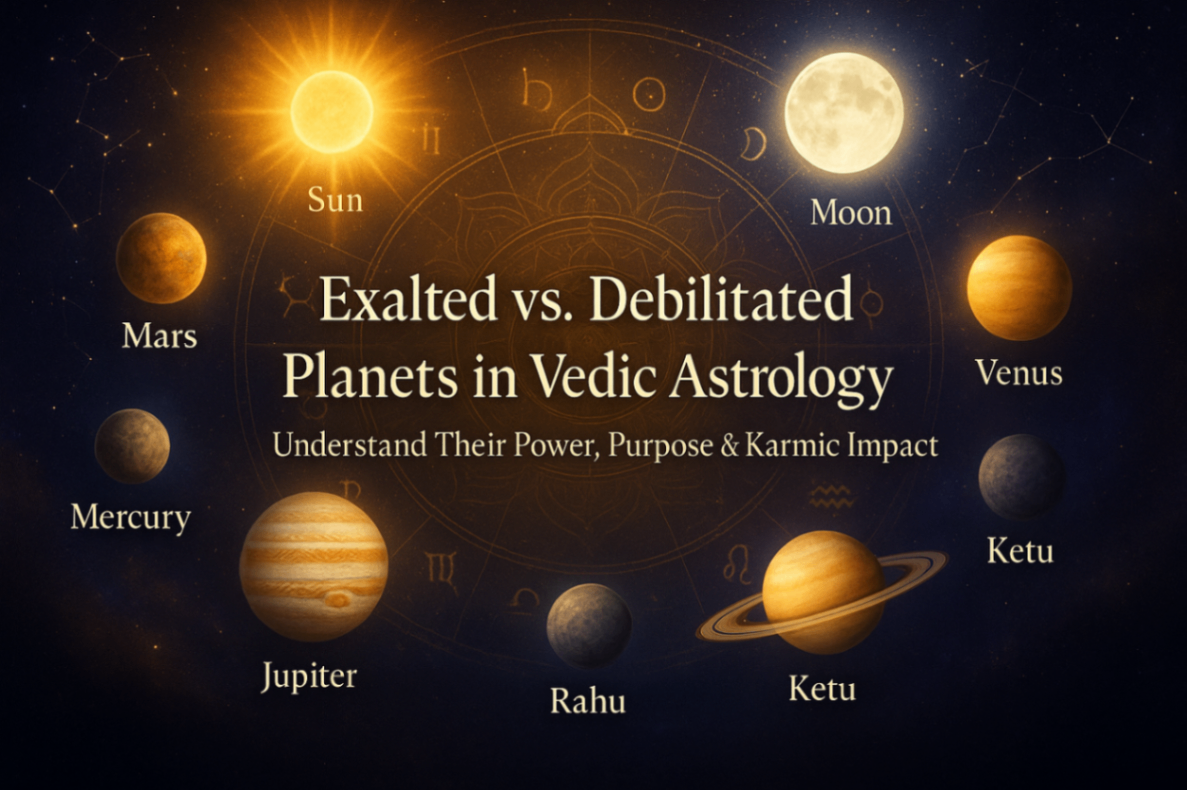Vedic astrology is a vast and ancient science that has been practiced for thousands of years. It is deeply intertwined with the spiritual and cultural fabric of India. This article delves into the rules of Vedic astrology, mythological stories, and real-life anecdotes that illustrate its principles and applications.
Understanding Vedic Astrology
Vedic astrology, also known as Jyotish, is a system of astrology that originated in ancient India. It is based on the Vedas, the oldest sacred texts of Hinduism. Unlike Western astrology, which primarily focuses on the sun sign, Vedic astrology places greater emphasis on the moon sign and the rising sign.
Key Components of Vedic Astrology
There are several key components in Vedic astrology that one must understand:
1. The Planets (Grahas)
In Vedic astrology, there are nine planets, known as 'grahas.' These include the Sun (Surya), the Moon (Chandra), Mars (Mangal), Mercury (Budha), Jupiter (Guru), Venus (Shukra), Saturn (Shani), Rahu, and Ketu. Each planet has its own significance and effects on an individual's life.
2. The Houses (Bhavas)
The astrological chart is divided into twelve houses, each representing different aspects of life. The first house, for example, represents the self and personality, while the seventh house represents partnerships and marriage.
3. The Signs (Rashis)
There are twelve zodiac signs in Vedic astrology, known as 'rashis.' These are Aries (Mesha), Taurus (Vrishabha), Gemini (Mithuna), Cancer (Karka), Leo (Simha), Virgo (Kanya), Libra (Tula), Scorpio (Vrischika), Sagittarius (Dhanu), Capricorn (Makara), Aquarius (Kumbha), and Pisces (Meena).
4. The Nakshatras
Nakshatras are lunar mansions or constellations through which the moon passes. There are 27 nakshatras, each of which covers 13 degrees and 20 minutes of the zodiac. Each nakshatra has its own deity and specific characteristics that influence an individual's life.
Vedic Astrology Rules
1. Placement of Planets
The placement of planets in different houses of the chart is crucial. For example, the placement of Jupiter in the first house is considered highly auspicious, as Jupiter is a planet of wisdom and expansion.
2. Aspects
In Vedic astrology, planets cast aspects on certain houses and planets. For instance, Saturn casts its aspect on the third, seventh, and tenth houses from its position. These aspects can have a significant impact on the areas of life represented by those houses.
3. Dasha System
The Dasha system is a unique feature of Vedic astrology. It is a method of timing events in an individual's life based on the planetary periods. The most commonly used Dasha system is the Vimshottari Dasha, which divides the human lifespan into periods ruled by different planets.
4. Yogas
Yogas are specific combinations of planets that produce particular results. For example, the 'Gaj Kesari Yoga' occurs when Jupiter is in a Kendra (central house) from the Moon, and it is considered highly auspicious for wealth and success.
Mythological Stories
Vedic astrology is rich with mythological stories that convey its principles and teachings. Here are a few notable ones:
1. The Story of Rahu and Ketu
Rahu and Ketu are shadow planets in Vedic astrology. According to mythology, during the churning of the ocean by the gods and demons to obtain the nectar of immortality, a demon disguised himself as a god to drink the nectar. However, the Sun and Moon revealed his identity to Lord Vishnu, who then beheaded the demon. The head became Rahu, and the body became Ketu. These planets are significant in predicting eclipses and have a profound impact on an individual's life.
2. The Birth of Mars
Mars, known as Mangal, is the god of war and is associated with energy and aggression. According to mythology, Mars was born from the sweat of Lord Shiva, which fell on the earth. Mars is considered a powerful planet, and its placement in the chart can influence one's courage, strength, and assertiveness.
Conclusion
Vedic astrology is a profound and intricate science that offers insights into various aspects of life. By understanding its principles and applying its remedies, individuals can navigate their lives more effectively and achieve greater harmony and success.
For more insights, you can watch the video below:





































